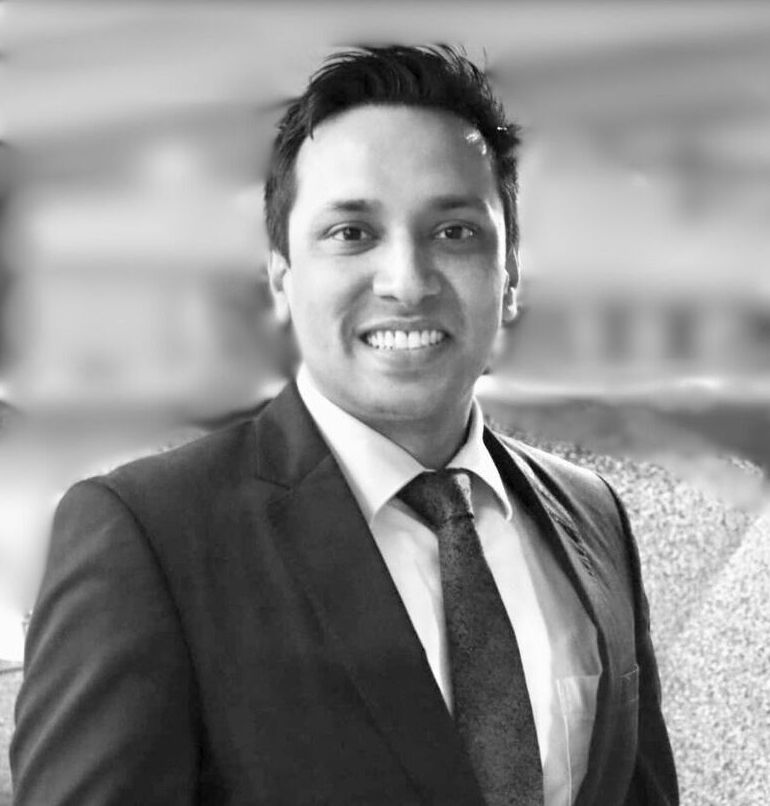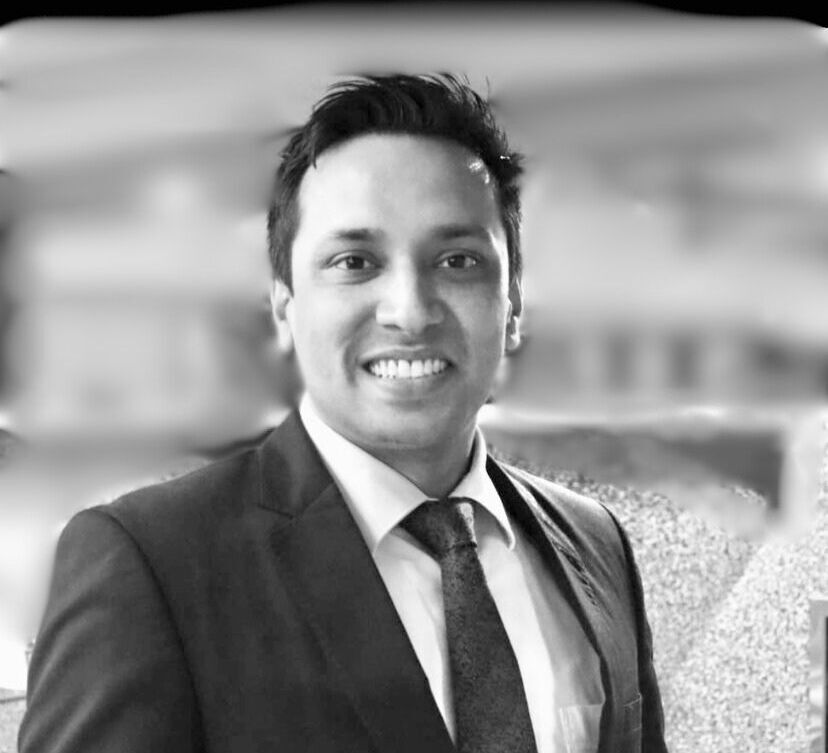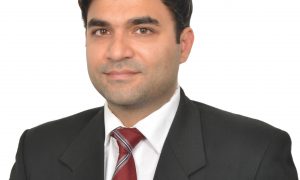This interview has been published by Anshi Mudgal and The SuperLawyer Team

With over 15 years of experience, could you take us back to your academic journey, beginning with your time at the Faculty of Law, Delhi University? What inspired you to pursue a career in law, and how did studying at Kyushu University in Japan influence your approach to the legal field, particularly in the realm of international law?
My academic journey began at the Faculty of Law, Delhi University, where I developed a strong foundation in legal principles and discovered my passion for corporate law. I was drawn to the field because of its potential to solve complex business challenges while fostering growth and compliance.
Studying at Kyushu University in Japan was a turning point. Immersing myself in a different culture and legal system enhanced my understanding of international law and cross-border transactions. It taught me the value of precision, discipline, and a global perspective, all of which continue to shape my approach to the legal field. These experiences have been instrumental in building my career and refining my ability to navigate both local and international legal landscapes effectively.
Throughout the early stages of your career, you worked at several esteemed law firms in both India and Japan. What key experiences did you gain during this time that were instrumental in shaping your career path and refining your skills?
Working at full-service law firms in India and Japan provided me with unparalleled exposure to high-stakes transactions and diverse legal frameworks. In India, the fast-paced environment of firms honed my ability to think critically under pressure, manage complex deals, and collaborate with multidisciplinary teams. The emphasis on precision and delivering results in time-sensitive scenarios taught me the importance of efficiency and client-centric solutions. In Japan, I was introduced to a meticulous approach to law, with a focus on structure, compliance, and cross-border considerations. This experience deepened my understanding of international legal systems and enriched my ability to navigate the nuances of global transactions.
One of the most valuable lessons I learned during this phase was the importance of adaptability. Moving between jurisdictions and working with culturally diverse teams sharpened my interpersonal skills and broadened my perspective on problem-solving. These experiences were pivotal in shaping my career and continue to influence my approach to delivering comprehensive legal solutions.
What led you to specialize in corporate law, with a particular focus on mergers and acquisitions (M&A)? Were there any pivotal moments or turning points that reinforced your decision to choose this specialisation and have a multi-jurisdictional M&A practice?
My interest in corporate law, particularly M&A, stemmed from the dynamic nature of the field and its significant impact on businesses and economies. Early in my career, I was drawn to the challenge of structuring complex transactions, negotiating deals, and solving intricate legal issues that arise in M&A.
A pivotal moment was my involvement in my first cross-border transaction. The experience of navigating differing legal systems, cultural nuances, and regulatory frameworks was both challenging and deeply rewarding. It reinforced my decision to focus on multi-jurisdictional M&A, as it allowed me to combine technical expertise with strategic thinking.
Over time, I’ve found this specialization to be uniquely fulfilling, as it requires a balance of legal acumen, commercial awareness, and adaptability—qualities I’m passionate about cultivating and applying to every deal I work on.
With your experience in both India and Japan, how have these distinct legal environments impacted your approach to transactional work? What specific skills or insights have you gained from each jurisdiction that you now apply in your practice?
Working in both India and Japan has given me unique insights into how different legal environments shape transactional work. In India, the legal landscape is dynamic and fast-paced, which has taught me to think quickly and manage complex, high-volume transactions. It has also emphasized the importance of flexibility and adaptability when dealing with diverse stakeholders and varying business practices.
In contrast, Japan’s legal system is highly formal and meticulous, with a strong focus on the process, detailed documentation and compliance. This experience deepened my understanding of the importance of process, precision, thoroughness, and risk mitigation, particularly in cross-border transactions.
Combining these experiences, I now approach multi-jurisdictional transactions with a well-rounded perspective, balancing the need for agility in India with the emphasis on structure and diligence in Japan. This allows me to tailor solutions to clients’ needs in a variety of legal environments.
In your current role, you’ve worked across various industries, from luxury retail to electric vehicles and defense. What unique challenges do international companies in the electric vehicle sector face when establishing operations in India? Can you share an especially memorable or complex case you’ve handled in any of these industries?
Working with clients from various industries is always very rewarding as each sector and industry comes with its own unique requirements, challenges and solutions.
International companies entering the electric vehicle (EV) sector in India face several unique challenges, primarily around regulatory complexities, market dynamics, and infrastructure. One key challenge is navigating India’s evolving regulatory framework, which is still in the process of developing clear policies for EVs, particularly around subsidies, taxation, and incentives. Companies must ensure compliance with various environmental and safety standards while also anticipating future changes in the regulatory landscape. Additionally, the EV market in India is still in its nascent stages, and all stakeholders must address infrastructure concerns, including limited charging stations and supply chain issues related to battery production. The growing competition within the sector also means that companies need to create intellectual property, adopt new technology, innovative business models and engage with local partners who understand regional market dynamics.
Given these challenges, companies often need to work closely with local government bodies, business partners, and regulatory experts to ensure smooth market entry. This collaborative approach helps in navigating the complexities of the Indian market, ensuring that businesses can align their operations with both local opportunities and challenges. Understanding the market’s long-term trends, such as the growing emphasis on sustainability and electric infrastructure development, can also help companies develop more effective strategies.
In one case, I worked with an international retail brand planning to expand into India. The challenge was navigating the complexities of India’s FDI (Foreign Direct Investment) policies, particularly in the retail sector, where there are specific regulations around multi-brand retail and sourcing requirements. The client was keen on setting up flagship stores across major cities, but we had to carefully craft the entry strategy to ensure compliance with the local sourcing norms and ensure alignment with the client’s global brand standards. We have had similar experience with clients in the defence industry which continues to be heavily regulated and the regulations are very dynamic in nature.
These cases reinforced the importance of understanding local regulatory nuances, market realities and working closely with clients to craft a strategy that aligns with both global standards and local requirements. Such transactions are challenging but are also extremely rewarding experiences for us as a firm.
In multi-jurisdictional transactions, clients often face challenges arising from conflicting laws and regulations across different countries. How do you navigate these complexities when advising on cross-border mergers, acquisitions, and expansions? Can you provide examples of particularly intricate deals you’ve worked on, and the strategies you used to manage these challenges?
Navigating the complexities of multi-jurisdictional transactions requires a deep understanding of the regulatory and legal frameworks across different countries, and reliable partner firms in foreign jurisdictions. Clients often face challenges when laws and regulations conflict or vary significantly between jurisdictions. My approach begins with a thorough analysis of the legal landscapes in each relevant jurisdiction to identify key regulatory issues, such as antitrust concerns, foreign investment laws, and sector-specific restrictions.
For instance, when advising on cross-border mergers or acquisitions, I prioritize coordinating with local counsel in each jurisdiction to ensure compliance with the laws specific to each region, while also considering the overarching strategic goals of the client. This collaboration helps in mitigating risks related to legal incompatibilities and ensuring that the deal structure accommodates the different regulatory requirements. I also work closely with tax advisors to address any cross-border tax implications, which can vary widely depending on the jurisdictions involved.
One particularly intricate deal which we have recently worked on involved an Indian client acquiring a company in Europe. The challenge was dealing with conflicting foreign investment regulations and structuring the deal to ensure compliance with India’s ODI policies while addressing the strict regulatory environment of both jurisdictions on foreign ownership in certain sectors. Additionally, both jurisdictions had different corporate governance practices that required us to align the deal structure with local laws while maintaining the client’s global operational standards.
To manage these challenges, we adopted a phased approach—first by ensuring all local regulatory approvals were obtained, followed by aligning governance structures, and then addressing the cross-border tax issues. The key strategy was to maintain a constant dialogue with local regulators and key stakeholders, ensuring that the deal complied with both local and international legal frameworks without compromising the client’s objectives.
Having worked in rapidly evolving sectors such as electric vehicles, IT, and new technologies, how do you stay ahead of emerging regulatory changes and the legal challenges facing these industries?
Staying ahead of emerging regulatory changes in fast-evolving sectors like electric vehicles, IT, and new technologies requires a proactive approach. The trick is to make it a priority to continuously monitor industry trends and legal developments, and engage with regulatory bodies and industry experts. This allows you to anticipate changes and advise clients on potential risks before they materialize. Additionally, it helps to collaborate closely with clients to understand their business strategies, ensuring that legal solutions align with both current regulations and future trends.
By remaining well-connected with industry networks and regulatory authorities, one can provide clients with timely, informed guidance that helps them navigate the legal complexities of emerging technologies and evolving markets.
Looking back on your career, what advice would you give to aspiring lawyers who wish to follow a similar path, especially those interested in gaining international experience and working across multiple legal systems?
Looking back on my career, the most important piece of advice I would offer to aspiring lawyers is to work hard, remain curious and open to new opportunities. Gaining international experience and working across multiple legal systems requires a deep commitment to learning and adaptability. My advice would be to seek out diverse experiences early on, whether through formal education, internships, secondments, or working with teams that handle cross-border matters. Exposure to different legal frameworks not only enhances your technical knowledge but also sharpens your ability to think strategically and solve complex problems. In addition, developing cultural awareness and building strong professional relationships in different jurisdictions is crucial. Working in multiple legal systems isn’t just about understanding the law; it’s about navigating the cultural nuances that influence business decisions and legal outcomes.
Finally, be patient and persistent. International experience often requires flexibility and the willingness to step outside your comfort zone. But with determination, you can develop a unique skill set that sets you apart and positions you to handle increasingly complex, multi-jurisdictional matters.
Given the demanding nature of your work across multiple legal domains, how do you manage your role at the firm and your personal obligations effectively? What do you do to unwind and relax?
Balancing the demanding nature of my work with personal obligations requires careful time management and setting clear priorities. At the firm, I ensure that I stay organized by structuring my day and breaking down complex tasks into manageable chunks, which helps me meet deadlines without compromising the quality of work. I also rely on effective delegation when appropriate, collaborating with colleagues to share the workload and maintain focus on key matters.
Outside of work, I prioritize personal time by setting boundaries and carving out space for activities that help me unwind. Whether it’s spending time with family, reading, or staying active at the gym, I find that these activities allow me to recharge and maintain a healthy work-life balance. I also try to schedule regular breaks throughout the day to avoid burnout and keep my energy levels up. Maintaining this balance is essential for long-term productivity and well-being.
Get in touch with Pankaj Singla –


























